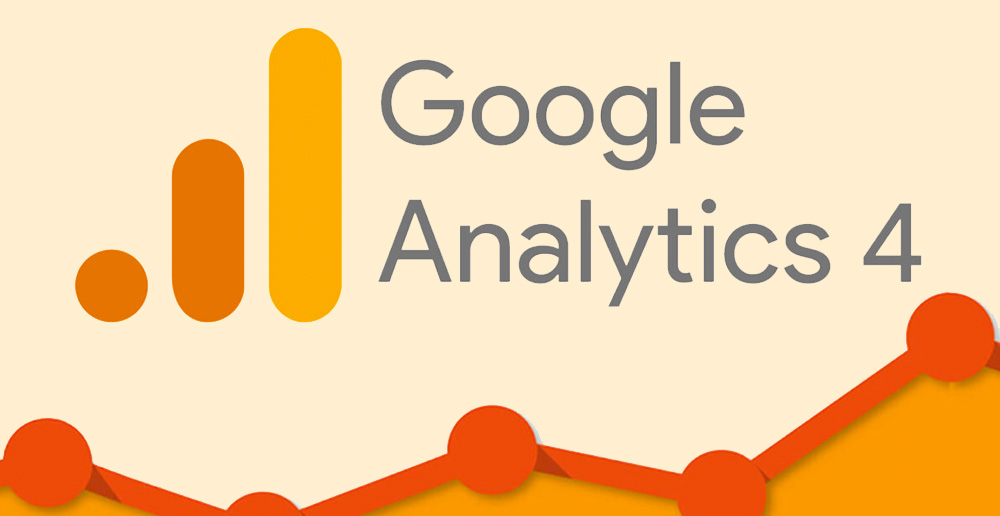Google Analytics 4, or GA4, is the newest iteration of Google’s widely used web analytics tool. First introduced in beta form in late 2017, GA4 has been steadily gaining traction among users, thanks to the new features and enhancements it brings over its predecessor, Universal Analytics (UA). In this article, we will take a deeper dive into some of the noteworthy additions and improvements in GA4.
The Core Highlights of Google Analytics 4
One of the major shifts in GA4 is its machine learning-driven approach to data measurement. It leverages “modelling” to interpret existing data and make assumptions about site traffic and user behaviour patterns. A notable feature powered by AI is “Insights,” designed to automatically spotlight useful information for marketers.
What is GA4?
GA4 aims to provide a holistic view of the customer journey across multiple devices, focusing more on tracking an entire shopping journey rather than individual metrics across devices, pages, or segments.
Another significant change is the introduction of “data streams” in place of views and segments found in earlier UA properties. GA4 doesn’t have a “view” level section. Instead of the traditional three-tier structure (Account, Property, and View) of UA, GA4 operates on two levels: Account and Property.
Event tracking has also been simplified in GA4. Unlike the classic Analytics that required tweaking the Analytics code or using the gtag.js script, GA4 allows for event editing, tracking, and fine-tuning within the user interface itself.
Key Features of Google Analytics 4
AI-Powered Insights and Predictions
While machine learning insights have existed before, GA4 elevates this capability by highlighting data trends like surging demand for a product or service. The platform can predict outcomes such as churn rates and potential revenue from a specific customer segment, enabling you to anticipate future customer actions and focus on high-value audiences.
Improved Audience Integration with Google Ads
GA4 allows for more in-depth building and maintaining of audience lists, promising a better return on investment. If a user qualifies for your Google Ads audience list due to an action they took on a webpage or app, they can be automatically removed from the remarketing list once they’ve achieved the goal of that campaign, reducing unnecessary ad spend.
Customer Lifecycle-Centric Reporting
The structuring of reports is one of the clear distinctions between Analytics 4 and Universal Analytics. GA4 strives to offer a comprehensive view of customer interactions with your business across various devices and channels. Moreover, you can now assign an ID to a user or enable Google signals to deduplicate users across devices for improved reporting and ad targeting.
Advanced User Data Controls
GA4 includes options to help businesses comply with data regulations such as GDPR and CCPA.
Adapting to a Future Without Cookies
With the impending phasing out of third-party cookies, Google anticipates sparse data to be the norm. To address this, GA4 will use machine learning to fill data gaps, ensuring reporting accuracy for better insights.
Looking Ahead
As it stands, GA4 is still missing some features that seem straightforward to implement, such as Google Search Console integration and site speed metrics. However, it’s important to remember that GA4 is still evolving.
Despite its current limitations, it’s time to start exploring Google Analytics 4. While it may not yet be ready to replace your primary analytics platform, it offers enough to warrant your attention and gather data on your behalf. The best strategy is to start familiarising yourself with GA4 now to ensure a smooth transition in the future.
Embracing GA4 as a Part of Your 2023 Digital Marketing Strategy
In the ever-evolving digital marketing landscape, staying ahead of the curve is crucial for businesses. In 2023, Google Analytics 4 is set to play a significant role in shaping successful digital marketing strategies. Offering a more comprehensive view of the customer journey, improved integration with Google Ads, and advanced machine learning capabilities, GA4 is a powerful tool that can help businesses gain valuable insights and make data-driven decisions.
However, navigating these new features and understanding how to leverage them effectively can be challenging. That’s where Design Point Digital comes in. Our team of digital marketing experts are well-versed in GA4 and its many features. We can help you understand and implement GA4 into your digital marketing strategy, ensuring you’re making the most of what this new tool has to offer.
Reach out to our team as we are currently offering a free marketing plan to help you kickstart your 2023 digital marketing strategy. With our expertise and your vision, we can work together to drive your business towards success in the digital world. So why wait? Reach out to Design Point Digital today and discover the potential of Google Analytics 4.


